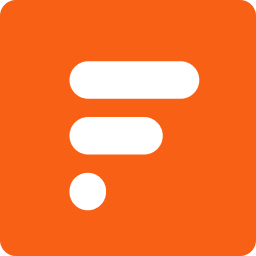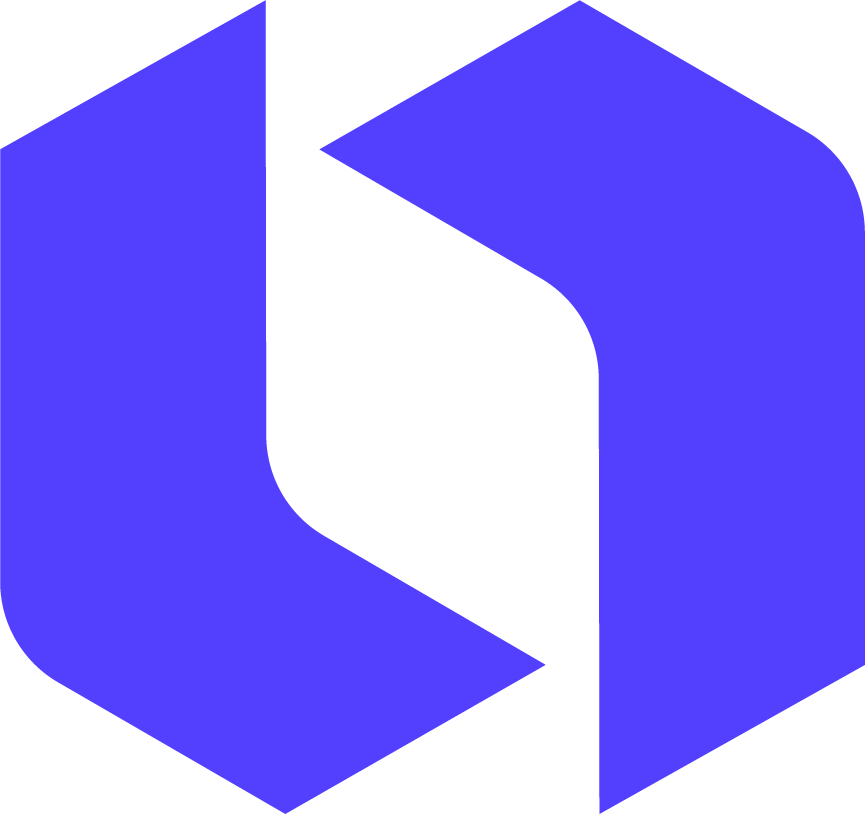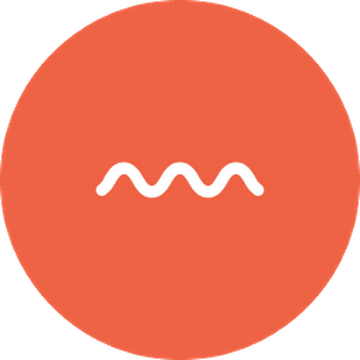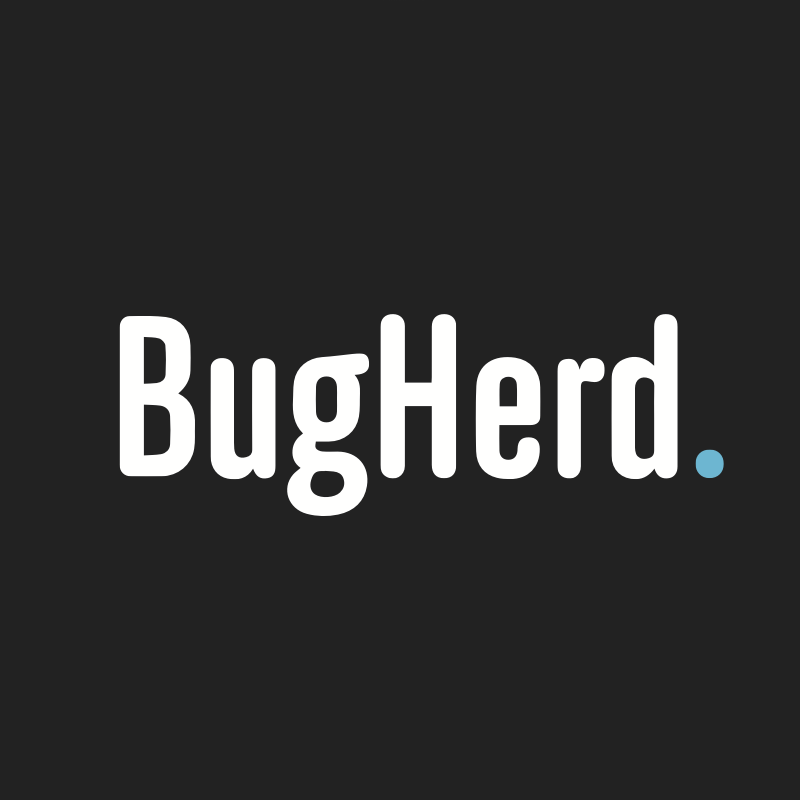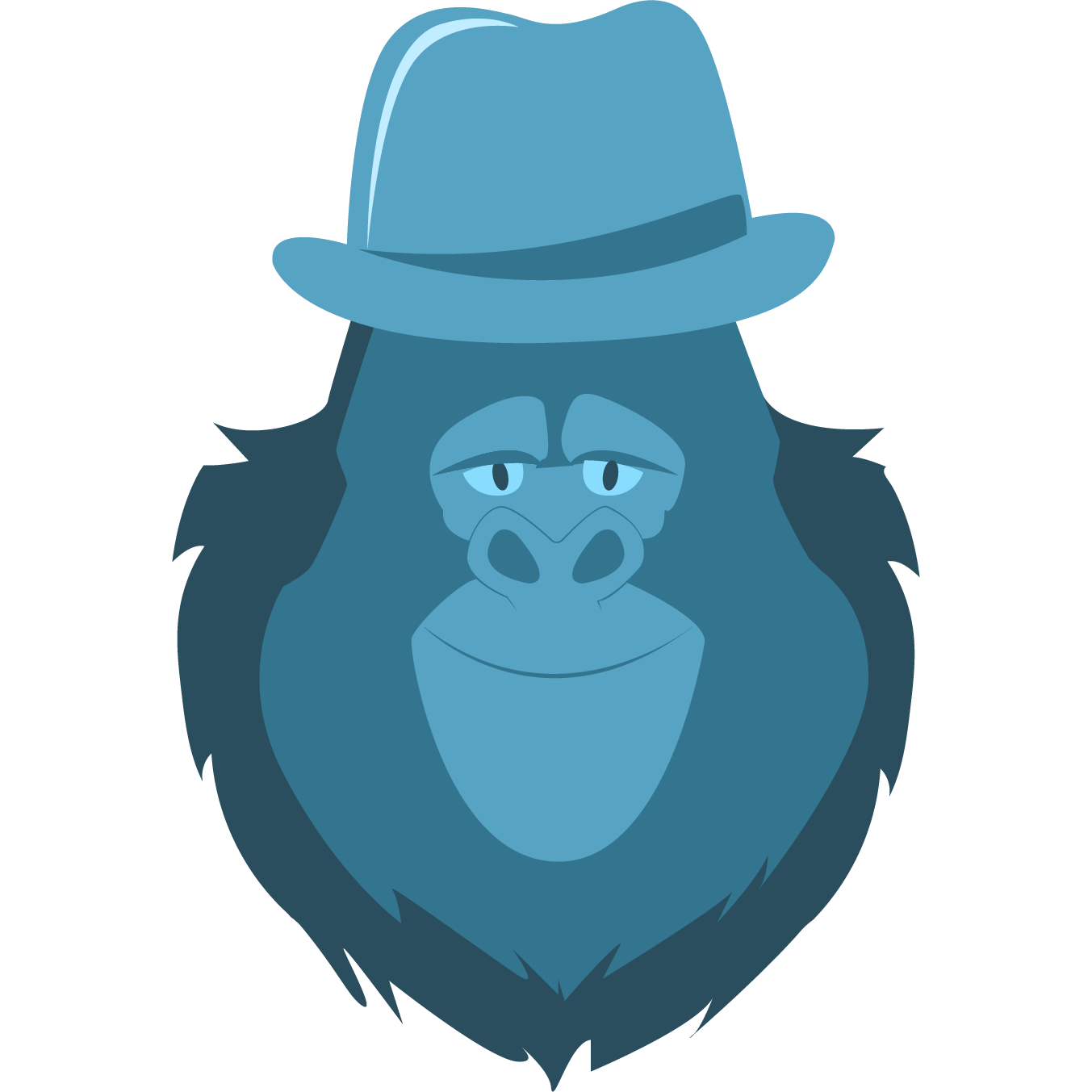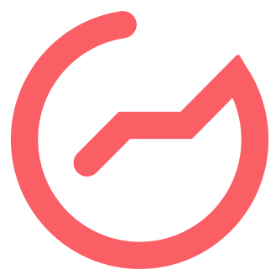Ask a UX Engineer: An Interview with Adam Conrad
2018-07-23This week I had the opportunity to meet with Adam Conrad, UX Engineer and Founder of Anon Consulting. Adam started his career as a software developer at Microsoft and later transitioned into UX Engineering while working at a few different startups.
With over 10 years of professional experience, Adam has watched the web development industry change dramatically.
In this video, Adam answers all of the UX Engineer questions you’ve been wondering about.
Video Transcription
Nick: Hello and welcome to the very first video in a series where we talk to experts to learn all about UX Engineering. My name is Nick Rollins from UXEngineer.com and with me today is Adam Conrad, UX Engineer and Founder of Anon Consulting.
Adam writes helpful content on his blog at UserInterfacing.com and you can find him on Twitter @theadamconrad.
Adam, thank you so much for making this interview happen. As the very first video this is kind of like history in the making. So, that makes you a pretty special guest.
Adam: Well, thank you for having me on, Nick. This is going to be a lot of fun.
Nick: Yea, absolutely. So, I have a few questions that I wanted to ask you right up front for everyone that’s watching this, that is interested in learning about UX Engineering. I think probably the most obvious question would be:
From your experience, how would you define UX Engineering in a nutshell?
Adam: Sure, so UX Engineering is a very, very new and evolving field. But I think you can break it down into its component pieces as a really multidisciplinary field.
So there is the User Experience part, which is self-comprised of sort of the practical version of what’s called Human-Computer Interaction. In academic terms, Human-Computer Interaction really is a combination of psychology, design, and computer science.
And then you have the engineering piece, which really just is the practical application in a programming setting.
So, when I think of UX Engineering, I’m thinking of really combining psychology, design, and computer science in sort of a practical, product-driven environment.
Nick:
Would you say that marketing fits in there somewhere too?
I know I’ve seen a lot of job descriptions for UX Engineering, where they say you work closely with the marketing team. It seems like that experience would be helpful in that regard too.
Adam: Yea, in a sense you’re going to have to…marketing’s job really is to convert people to try out your product. And they’re going to be, probably at the top of the funnel. So if you think about how people get engaged with the product, marketing is really going to be a drive from the top of the funnel.
And so, they’re going to need to have landing pages, they’re going to need to have content pages that are, let’s say if you have a SAAS product, you’ve got the internal logged in version of the product, the actual SAAS product and you have the landing pages, which help you learn more about the product and it’s still going to need to be designed. It’s still going to need to be implemented.
So, absolutely. You’re going to be working with the marketing folks. You’re going to want to learn exactly how they think about the problem, how they approach the problem, and how users think about onboarding themselves onto a product. So, having that experience is absolutely is useful.
I think the one caveat there is, marketing itself has a certain set of skills that I don’t think a lot of engineers have particular experience with. Especially if you haven’t been in a consulting firm or an agency where you have to do sales and marketing, It can be kind of difficult to find people with marketing backgrounds. But I’m sure there are people out there that have done that before.
Nick: You’re talking about sales and marketing. It reminds me of the worst job I ever had…was going door to door to these businesses and trying to sell them on some advertisement. And I sucked at it (laughs). I was absolutely horrible at it. So yea, I can see where it would probably be better to work with a team that’s experienced in something like that than to try to take on that whole marketing role as part of being a UX Engineer.
Adam: I bet you’re really good at taking rejection now because, if there’s one thing I’ve learned about marketing and sales, it’s that you get a lot of “no’s.”
Nick: Oh man, yea. It was like 98% “no,” maybe 99. Yea, it was pretty tough.
Adam: Yea, that sounds about right.
Nick: Yea. So, I was looking at your LinkedIn profile and it says that you started your career as a Software Engineer for Microsoft, and from there you went to Vista Print as a Senior Software Engineer. So, I’m curious:
What was it that made you want to move into that UX type of role?
Adam: So, I actually started making websites when I was 12. My very first website was a Nintendo 64 cheat code database. I was really into, like…I don’t know if you remember AOL? I was a member on AOL.com forward slash whatever my username was back in 1995 or ‘97. I really got into…I wanted to just produce web pages and share them with people and I really loved video games.
And so, my thought was, alright I have to figure out how to design one of those things and then get them on the web. Then I thought “oh, ya know what? I need to write CGI scripts. I need to have some way of connecting to a database to house all of these cheat codes. How am I going to do all of this?” I just thought it was all part of the deal of being a web designer. So, I kind of came into it with a design background.
Then, I was taking math and science classes in high school, and I said “Oh, well I don’t know. I can either go to design school or I can go to, not programming school, but I can get a computer science degree.” At the end of the day, I just said: “Ahh, I think I might have a better shot at getting a job if I do the computer science route.”
So, I sort of went on hiatus for six years and did a computer science degree, stuck around for a master’s because I didn’t feel ready to enter the real world. Then, I had two jobs. I mean, they were web developer jobs but they were still very much back-end focused, and then I said “Okay, I’ve had enough. I need to get back to programming meets designs somehow and that’s when I jumped into startups.”
Yea, I very much came from wanting to do that from the very beginning and seeing programming as a path to getting there.
Nick:
As a founder of a company now, has entrepreneurship always been something you’ve been interested in?
Or is that something that kind of came about more recently? or…
Adam: Yea, absolutely. It’s been in my family for a very long time. My parents owned an interior decorating store when I was a kid. It was a small business, nothing like a startup or a bigger company, but my parents were entrepreneurial.
I was really excited by that idea and then my first actual programming job was helping make HTML documentation for my mom’s company over a summer while I was in high school. I saw how that company operated, they operate out of one, not cubicle, but like one hallway of an office space of the company that they did most of their consulting for. I just thought it was so cool that they all knew each other and they were all so tightly knit.
From there, even when I went to school, all my internships in college were at startups. I just loved the atmosphere, the mentality of just working hard, finding that comradery, and building something awesome together.
So, I always knew that I wanted to do some sort of startup in an entrepreneurial fashion. I just didn’t necessarily have an idea at the time, and so a lot of it has just been sort of biding my time of that.
That’s part of why I got into consulting as opposed to starting a company because I just didn’t really have an idea of what I wanted to break out of my own. I thought I could do sales and marketing…well I thought I could! I had a lot of vibrato before then. Then I realized how much work it is.
You’ll do a 40 hour week job and then oh yeah, well you have to let people know about your business. So, that’s another 20 hours plus on top of the 40 your billing to your clients. So, a lot of work but it’s very rewarding and I’m happy to at least have dipped my toes into it now.
Nick: Yea, that’s pretty cool. I kind of had a similar experience growing up. My family was very entrepreneurial and I was around that growing up. I have always been very interested in entrepreneurship.
So, the next question I got for you is:
What does your current UX Engineering process look like?
How would you describe a project from beginning to end and what you do with that?
Adam: Sure, so the UX Engineering process isn’t too different from a standard Software Engineering process, in terms of start to finish. So, I work with product managers and designers and take specifications and designs and turn them into code. So, most of that work is implementing complex UIs, front-end languages (HTML, CSS, and JavaScript) and leveraging some sort of framework, whether it’s Angular, React, Vue, or something else. So, that’s the bulk of my work.
Then, other pieces that are more UX Engineering related will include, asking the appropriate questions in the eyes of the user. I’m not just coding something up, I’m also asking “Alright, well what is the rationale behind the copy behind this button? I’ve seen instances where it should look like X, but seems like we are pivoting onto Y. The research supports doing something like X. Is there a reason why we’re doing this?”
Or you’re just calling things out saying “Hmm, it seems like we are using a red button here, and red is commonly thought to associate with something bad or something that involves stopping, but we want them to continue. Is this the right color we want to use for this style?”
So, I think a big part of the ux engineering process that might differ from a traditional front-end engineer, is that extra amount of empathy involved thinking like a user experience professional - in the context of the engineering practice.
Additionally for me, because I have a background in programming, I also do some back-end work as well. So, I’ll be doing Python or Ruby or even Elixir, depending on the project, and just using those languages to support the UIs that I’m building most of my time.
Nick: That’s awesome. Yea, you know, from what I’ve looked at in terms of ux engineering as a profession, I’ve noticed that most of the time back-end stuff is not a requirement for that position, so it’s pretty cool that you are engaged on that side of it too. So you could literally build a web app from the ground up, without needing anyone else to help support with that. That’s pretty neat.
Adam: Yea, another good way to look at that is, I’m good at a lot of things, and master of none.
Nick: (laughs) Yeah, that’s funny. The next questions I got for you are:
What skills would you consider to be critical to be effective as a UX engineer?
What are your thoughts on that?
Adam: Sure, so again, I think about UX engineering as multidisciplinary. So, let’s break down each piece of that and what the core skills are for those individual disciplines.
On the UX side, I think empathy is the number one critical skill. You need to be able to step amongst someone else’s shoes to know how they’re thinking, how they’re feeling and how they’re going to react. So, if you can empathize with your user, you have this secret power which allows you to be the customer, rather than either the developer or the designer. I think empathy is critical to becoming a very good UX professional.
On the engineering side, and largely in most professions, the core skill is problem-solving. A lot of people will say, programming languages or data structures and algorithms, but at the end of the day all that stuff really bubbles up to math. Math itself bubbles up to some form of problem-solving and logic.
If you can take a problem and you can break it down to its subcomponents, break them down to their smallest pieces and then tackle those individual problems, understand how to go about meeting a problem and developing a solution, and thinking about what happens when you get stuck - That’s really the core of any engineering discipline whether its software or civil or mechanical engineering.
If you can develop a good system for problem-solving, that’s going to take you very, very far. Honestly, once you learn one language, you learn quite a few of them and that’s why if you have problem-solving as the foundation skillset that can really take you very far.
And I think the last thing that we touch on is just curiosity. We are in a profession that requires you, in a way, to really want to explore more things because our industry is changing so quickly. If you’re not curious about something coming up next, you’re going to be left behind. If you only ever studied Photoshop, you likely would not be employable right now as a designer, because so many people have moved on to Sketch or Figma or Adobe Illustrator even.
The landscape just moves so quickly, even on the programming side. There are COBOL developers and they’re getting paid quite a bit to maintain legacy systems but the majority of the work is in Java, C++, Python, Ruby and even newer languages. Having that curiosity to want to explore more is both really, really fun, but also requires some effort to explore and to learn more. If you know 90%, if you know those three things, empathy, problem-solving, curiosity, that’s going to get you 90% of the way.
I think the other thing that I’ll just tie-in, for me personally, one critical skill for me was just recognizing that I was in this middle ground between designer and developer. I talked earlier about how I started out as a kid just making web pages, and then I figured out that programming was one way for me to get there.
This was a long time ago. I’m 32 now so I’ve been out of school for a while. So, back in 2004, there was no such thing as a ux engineer, let alone a front-end developer, let alone a back-end developer. Those didn’t exist, you were a web developer or a webmaster. There was not a lot of room to specialize in anything. So, I sort of had to just make my own ground. I basically said, I’m a developer and I can also can kind of do design.
Then from there, that sort of led into “Oh, well there’s people that like to touch design very minimally but really like to code,” and “Oh that’s front-end engineering.” That didn’t come about until 2010, 2011.
Now we are starting to see these roles at really big companies - Facebook, Google, Amazon. They have roles specifically for UX engineering, which is even then a more specialized form of front-end engineering because now you can say “Well, I really like front-end engineering but I’m also kind of interested in UX. I’m kind of interested in design.” But those roles didn’t exist, so we are seeing this hyper-specialization which, this is nice. For the longest time, I just didn’t know where I fit in, which brings me back to those critical skills.
If you at least focus on those critical skills until someone defines that perfect role for you, those are at least going to get you far enough to really be employable and have a really fruitful career by focusing on problem-solving and empathy, and of course, having that endless curiosity.
Nick:
Yea,that was a great answer to that question. I absolutely agree with all that. Empathy is definitely the most, probably, important skill to be an effective UX Designer. If you can’t put yourself in the user’s shoes I don’t know how you can effectively design for a user. Another one that kind of came to mind while you were talking about talking about that was observation. I think it’s also another good skill that I have found useful in design in design work. I like to look at a lot of the so-called “state of the art” websites out there and see those trends in the user interface…and you kind of see that they generally follow the same type of trend. Working with eCommerce, you definitely see that a lot. For example, Baymard did a study in 2013 where the carousels on your homepage that, you know, you can click through for product images - 52% of eCommerce websites had a carousel like that. And they recently did another study in 2017 and that number has dropped down to 32%.There is a lot of other research that suggests people don’t normally go past the first slide and that…just having that extra code in there for this carousel that nobody’s using is probably just not worth it.So the next questions I got for you, Adam:
Starting your own company, what additional skills outside of UX Engineering have you have to acquire to make your company work?
Adam:
Sure, so I think there are quite a few tangential fields outside of…like I said…so, if we’re talking UX Engineering, we’re talking psychology, design, computer science, business, entrepreneurship. I think there are a couple of other fields that really have good carry over to the field of UX Engineering. I think the first is human and cognitive psych. So, this is the field of studying how do people think, why they think that way, what ways are they biased. There is a really cool site called Cog Lode dot com or dot org? And they spell load wrong. It’s “L-O-D-E” for some reason.[visit CogLode.com]But their website is really cool. It’s very colorful. It’s very well designed. And they basically go through major biases that people have, the names of them, where their origins are from, and all the research that went into discovering these biases. So, it’s a really cool way of learning more about the human condition - why we do things the way we do them. And that’s all in the world of cognitive psychology. That’s sort of a more specialized branch of the psyche if you’re studying human-computer interaction.I think another one that is very underrated, that I think people should spend more time with is behavioral economics. In a way, behavioral science is very related to psychology, but in terms of economics, I don’t think a lot of people think of computer science and behavioral economics as having a lot of connection, or even design and economics. But if you think about it, ultimately we make products that people want to buy, so knowing how they purchase and they’re behavior behind purchases, it’s going to have a huge impact in understanding their motivation and why they do the things they do. Because no one makes stuff for free unless you’re doing open source. And even then, you’re trying to understand what will convert someone from being on the front page to clicking that “buy” button so that I still get a paycheck. So understanding behavioral economics is going to help you get a lot further there.Then in terms of things outside of specialized fields, I think just understanding research and how to learn is really important. If you’ve never had an academic background in graduate school or understanding the scientific method…Understanding that stuff on your own and learning how to learn is going to be huge, especially in the field of UX research. If you know how to ask questions, how to learn from others, particularly for interviews or screencasts, that’s going to help you turn what may seem like noise into signal. In many circumstances, people will say things about their experience and may just seem very commonplace, but in actuality, the things they say, and the way they say them, can help you understand the problems that they’re experiencing on your site or your application. And then finally, this one’s just personal for me. I don’t think a lot of people would really recommend this, but I’m really big into fitness and health. And the reason I think this is a good skill to have is that it takes a lot of discipline and motivation to go to the gym every day, to eat right, to get the right amount of sleep. But the fact is that regardless of what discipline you’re in, if you’re healthy, you get the right amount of sleep, and you take care of yourself, you’re going to perform at your best. I can’t imagine that I could do all the things I do running on four hours of sleep or eating poorly. So, I think that is sort of a basic skill that is not particularly UX Engineering, but I think reinforcing the discipline and focusing on my health has really made an impact on me being able to do the things I can do at the level I do.
Nick:
Yea, that’s really interesting that you talk about how important health is, in terms of skills to help you run your company. It’s actually..I’ve heard that in a lot of other cases too. I’ve read a number of different books… “Y Combinator” comes to mind, or “The Launchpad,” I think is what it’s called. In that they talk about the story of Genius, I think is…the lyrics website, and how that was founded. And the founders of that talked about how working out every day was pretty critical to, you know…And it makes, if you’re staying up all hours of the night and working, it’s just not sustainable and you’re going to crash and burn. You’re not going to be very effective at what you do if you’re not staying healthy.
Adam:
Yea, and don’t get me wrong, I mean we all spend a fair amount of time doing those late nights because we have to or we got to meet a deadline. It’s going to happen no matter what, but I think you were right, in “Y Combinator,” I’ll never forget that advice for very, very early stage companies. You really only need to do 5 things:
- Eat
- Sleep
- Exercise
- Build product
- Talk to customers
That’s the only thing they want you to do when you’re at Y Combinator and when you’re at the very beginning, starting your company. Anything outside of those five is noise. If you think about that, three of those things are health-related: good sleep and exercise. The other two are actually about building your startup.
Nick:
Yea, that’s that is interesting. That’s probably a really good way to look at it too. So, while we’re on the topic of skills I also wanted to ask you…one thing that I find particularly interesting about the tech industry is this divide that exists between designers and developers. It seems like designers struggle with engineering, the complexity of engineering, and developers struggle with design and the subjectivity that comes with that. So, I’m curious
What are some of the biggest obstacles you’ve had to overcome to improve your skills in both of those areas?
Adam:
I actually think it really comes down to just practicing a lot. I know that’s a boring answer to a lot of people, that “Oh, just practice and you’ll get better, duh. Okay.” But I think when it comes down to the core difference between programming and design, it’s that programming has a very explicit answer. You put in some inputs and get an output. If it matches the output that’s expected, you win. But that’s not the case with design. Design has no right answer and that can make it very frustrating and very difficult for people to figure out how they get better. You know the classic example of this when you look at these websites…when they say “the top five websites that look ugly but convert really well.” And I think of the Drudge Report, I think of Craigslist…those websites, to many people look hideous, but they convert. So, especially from a UX standpoint, and not pure design standpoint, yea Drudge Report is super effective because it is converting people and the experience goes along with what people expect from the news that’s on Drudge Report. So, in many ways design is really, really tough because there are no right answers. If you’re writing stuff in Comic Sans, if you’re making an ironic meme in Comic Sans - That might actually be the appropriate font to use. Albeit, very, very rarely that might actually work. That’s really tough, but the more you do it, the more you’ll develop your own taste. I mean there’s that classic video from Ira Glass who’s the creator of one of the NPR shows. Not “All Things Considered.” What is it? “This American Life.” They interviewed him about how you get better at any sort of creative art. His response is “Well yeah, there’s a period where you know that you have good taste, but you can’t actually create it yourself.” And that’s kind of a lull period. I mean that absolutely applies in both design and programming. For a long time you can get by just helping some other developer make their site better and being better at programming, and then at some point, you feel good enough to you can start your own open source project. That goes the same thing with design. I mean, I’m 10 years into the business and I think for the first time ever, with my own consulting website, do I actually feel like it’s a nice looking website. Everything else before then I was always like “Oh, this is terrible. This never looks right.” But now, I actually finally feel like I’m starting to get there. So, it takes time and it takes practice and you stare at the screen forever. You never think everything looks quite right. It’s frustrating. You look at a tutorial and implement it yourself and somehow it’s completely different. Or just “Oh, this font looked so good when I saw it on the Google Fonts and I did it two pixels smaller in different letter spacing. Now it looks horrible. What did I do wrong?” That’s just kind of the nature of it. Yea I know it’s a boring answer but I really think just practicing a lot and continuing to power through, even when you hate the designs you make or the programs you write. Keep at it and you will get there.
Nick:
Yea, no actually I think that’s a that’s a great answer. And actually, you hit on the point of Craigslist and Drudge Report, and how these websites with awful designs convert really well… It kind of got me thinking about this book I recently read. I’m not sure if you’ve heard of it, it’s called “Story Brand.” In that book, the author says something that kind of it kind of hit me here a little bit as a designer… But he said that “design doesn’t sell things, words sell things.” The whole book is designed around this idea that in order to convert you have to have an effective copy. So, after reading that book it kind of got me into more of the “ux of words,” and understanding, you know…I don’t remember which company it is, but there’s one that that’ll do tests with 20 different headlines before they choose one. You know, you can have the prettiest site in the world but if it doesn’t communicate with your users…if it doesn’t resonate with them with the language you use, it’s crazy how big of an impact that alone can have on a website.
Adam:
I mean you can even think about how…right you’re saying “the UX of words.” What is that in a visual way? It’s typography, right? Think about how you can have the most perfect photograph, you can have a great color palette, and it looks terrible in the wrong font. It sends a completely different message. I mean, think about how like Trajan is the font that everybody uses for movies that are serious. Every horror movie uses it. Like any movie or any show that does something that’s somewhat retro uses Trajan Gothic. I think there’s like…every website that’s extremely minimalist or wants to seem like an art house does everything in Grotesque or in Helvetica, right? So it’s, in a way, like now these fonts have such a history now that it’s like every typeface has its own story in its own brand in a way.
Nick:
Yea, it’s crazy, you know? So, I think we have time for maybe one more question. The last question I have for you, Adam, for all those watching this:
What is the best advice you can give viewers that want to become a UX Engineer?
Adam:
The short answer is you got to love programming in a setting where you can actually influence the “why” from the user’s perspective. Again it’s kind of the definition of UX Engineering. Not a very interesting answer. The long answer is that you think about the evolution of programming and design jobs, they’ve become more specialized. So terms like “UX Engineer” didn’t exist a decade ago. Sometimes you’re ahead of the curve and [inaudible]. In my case was no front-end engineer, there was no ux engineer. Right now it’s starting to happen. I would say that don’t necessarily try to “time” becoming a UX Engineer. You know, honestly if you study great UIs and try to replicate them, and just read a lot of books, like “Don’t Make Me Think” or “The Design of Everyday Things.” Just immerse and focus instead on doing the things you like doing, whether it’s making complex illustrations and trying to reproduce those or trying to recreate the programming behind circus lights. Do those things. At some point, you’ll know where you want to settle and don’t let a title dictate what you want to do. Just like I said, it’s all programming or drawing at the end of the day. The nice part now is that no one’s being bucketed into just one camp. You can truly do both if you want to have a spectrum of skills. So, yea if you want to be a ux engineer, there are positions for that right now. Look at the job descriptions and see if those are all the kinds of things you like. Fill in the gaps in the places that they need help for ux engineering, but haven’t quite mastered yet. But again I would just caution that it’s so specific and we’re in such a new era, at least how we specialize positions, that if you just stick with the basics and find what you’re passionate about, you will persevere beyond whatever the next title is. At some point ux engineer will no longer be [inaudible], there will be something else that will likely have the same roots…the kinds of people that are ux engineers now will be some X engineer later. So, if you’re still fundamentally interested in empathizing with the user and liking to solve problems and just continuing to have that curiosity, wanting to reproduce designs or programs - that’s going to take you really, really far. And you’ll have a much more rewarding career if you focus on those things, instead of focusing on a title or focusing on landing that specific job.
Nick:
That’s a great answer, Adam. So, that concludes our interview. Be sure to check out Adam’s company website at AnonConsulting.com, his blog at UserInterfacing.com, and follow him on Twitter @theadamconrad.If you’re interested to learn more about UX engineering, you can subscribe to this channel for future videos or visit UXEngineer.com for more content.

